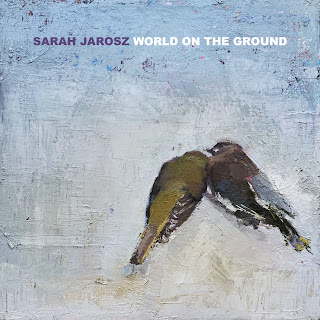
The story goes something like this: Skip Spence, guitarist for American psych rockers Moby Grape, was taking copious amounts of acid and dating a Wiccan who convinced him that his bandmates were evil. He then broke down their hotel room door with an axe and tried to kill them, earning him a six month stint in a mental institution, after which he recorded Oar, his only solo album. Legend has it that the album sold 600 copies, making it the worst seller in the history of Columbia Records. In any case it was a massive flop, but gained a snowballing cult status over time. Thirty years later, three things happened. First, Oar was issued on CD for the second time, this version including a batch of incomplete bonus tracks. Second, Spence died of lung cancer at the age of 52. Third, a tribute album called More Oar was released. Spence got to hear it; how he felt about it I don't know. It featured covers of every Oar song (including the bonus tracks) by artists such as Tom Waits, Robert Plant, Mudhoney and Beck (who contributed an excellent, fleshed-out version of the unfinished "Halo of Gold" and more recently covered the whole album, minus the bonus tracks, as part of his Record Club series).
Spence played everything on Oar, and it is the musical equivalent of a lonely, crazy man mumbling to himself. The album visits psychedelic rock ("War in Peace", "Grey/Afro"), folk and country ("Cripple Creek", "Broken Heart") among other styles, but even the upbeat numbers have a deflating effect. The simple acoustic numbers are some of the best; "Weighted Down (The Prison Song)" sounds exactly that, as if gravity is forcing Spence's staccato strumming almost to a halt. "Broken Heart" is given one of his most animated vocal performances, which is a stark contrast to the metaphors for disappointment such as a parched cowboy reaching a lake only to drown. The album's original sequence ends with the amazing, experimental "Grey/Afro". Like the bonus tracks, it's all bass, drums and vocals. Unlike those, it's nine and a half minutes long and makes extensive use of the early analog flanging techniques popularised by The Beatles and Jimi Hendrix. It's a worthy coda to a quaint yet engaging document from a strange young man who never quite found his place in the musical landscape.




No comments:
Post a Comment